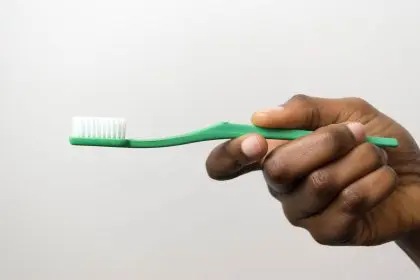Your body might be playing a game of keep-away with iron, and before you rush to pop those supplements, you might want to hear why this could actually be genius-level biological strategy. Turns out, that iron deficiency everyone’s always trying to fix might be your ancestors’ gift to you, a built-in shield against one of humanity’s oldest enemies.
The iron paradox that’s baffling doctors
Here’s where things get weird. You’d think having less iron would make you weaker, right? Well, your body apparently didn’t get that memo. In regions where malaria runs rampant, populations have developed some pretty clever genetic tweaks that mess with iron levels and it’s not by accident.
The malaria parasite is basically a tiny vampire that needs iron to survive and multiply in your bloodstream. When your body keeps iron locked away in cellular storage units instead of letting it float freely, the parasite struggles to get the resources it needs for its hostile takeover of your red blood cells.
Your genetic bodyguard system explained
Think of your genes as a sophisticated security team that’s been learning from thousands of years of malaria attacks. Some people carry genetic variations that affect how their bodies handle iron, creating what scientists call a nutritional immunity response.
The most famous example is sickle cell trait. People who carry one copy of the sickle cell gene get some protection against severe malaria, but they also tend to have different iron metabolism patterns. It’s like having a bouncer at the cellular level who’s really picky about who gets access to the good stuff.
Another genetic variation called thalassemia also provides malaria resistance while affecting how red blood cells are made and how iron gets used. Your body essentially becomes stingier with iron distribution, making life harder for malaria parasites trying to set up shop.
The evolutionary arms race continues
This isn’t just ancient history playing out in your bloodstream. Evolution has been running this experiment for millennia, and the results are still visible today. Populations from regions where malaria is common often carry these protective genetic variants at much higher rates than people whose ancestors lived in areas without malaria.
Your DNA is essentially carrying battle scars from humanity’s long war with malaria, and those scars happen to involve some pretty sophisticated iron management systems.
When iron deficiency becomes a feature not a bug
Before you start viewing iron deficiency as purely problematic, consider this fascinating twist. In areas where malaria is common, mild iron deficiency might actually be a protective adaptation rather than a nutritional failure.
Malaria parasites are iron junkies. They need it for DNA synthesis, energy production, and basically every aspect of their lifecycle. When your body restricts iron availability, it’s like cutting off the parasite’s supply chain during a crucial invasion.
Your immune system has learned to be strategic about iron release. During infections, iron levels often drop as part of the inflammatory response. This isn’t your body being confused but rather implementing a scorched-earth policy against invading parasites.
The modern world meets ancient adaptations
Here’s where things get complicated for people living outside malaria zones but carrying these protective genes. Your body might still be running ancient antimalarial software in a modern environment where malaria isn’t a threat.
This creates interesting challenges for health care providers. Simply throwing iron supplements at someone with these genetic variations might not work the way you’d expect. Their bodies might be programmed to be cautious about iron, even when caution isn’t necessary anymore.
If your ancestors lived in West Africa, the Mediterranean, or Southeast Asia, you’re more likely to have won this particular genetic lottery ticket. Your iron metabolism might be fundamentally different from someone whose family tree grew in northern Europe or other regions without malaria.
The bigger picture beyond iron pills
Understanding this connection changes how we think about both malaria prevention and iron deficiency treatment. It’s not just about fixing a nutritional problem but about working with evolutionary adaptations that have kept humans alive for thousands of years.
This knowledge is pushing medicine toward more individualized approaches. Instead of universal iron recommendations, doctors are starting to consider genetic backgrounds and evolutionary adaptations when treating patients.
Your body’s relationship with iron might be more sophisticated than anyone realized. What looks like a simple deficiency could actually be an elegant biological solution to an ancient problem. Sometimes the smartest thing your genes can do is hold back rather than forge ahead, even when it comes to something as essential as iron.















